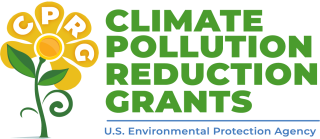Bad River Band of Lake Superior Chippewa Indians

On this Page:
Overview
| Anticipated Award Amount | $8,385,892 | |
|---|---|---|
| Applicant | Bad River Band of Lake Superior Chippewa Indians | |
| Application Title | Niigaani-bagwajiiwii (Future Clean Energy) | |
| Sectors | Buildings Electric Power Transportation |
|
| Estimated GHG Reductions 1 |
Cumulative 2025‑2030: Cumulative 2025‑2050: |
|
Selected Application Summary
The selected application will reduce greenhouse gas (GHG) emissions by conducting extensive electrification upgrades in Tribal residences, developing new grid-tied residential solar installations and a commercial microgrid at the Tribal Recycling Center, electrifying the Tribal vehicle fleet, and adding vehicle charging infrastructure. The selected application will address many burdens impacting the Bad River Band of Lake Superior Chippewa Indians by reducing indoor and outdoor air pollution, lowering energy costs and energy burden, and enhancing economic resilience related to climate change. On-site training and certification programs will be developed to create accessible pathways to high-quality jobs and careers in renewable energy construction and operations for projects located on the Bad River Reservation and beyond.
Key Things to Know
Based on information provided by the applicant, the selected project will deliver the following benefits to reduce GHGs and support communities 1:
- Improve energy efficiency by conducting energy audits at up to 200 Tribal residences and upgrading heating equipment and appliances, including air-sourced heat pumps, induction cooktops, and air-sourced water heaters.
- Achieve the Tribe’s goal of net-zero electricity usage by 2027 by installing solar photovoltaics at 85 residences.
- Reduce GHG emissions by adding six new electric vehicles to Bad River's transportation fleet, two 150-kilowatt direct current (DC) fast chargers, and two Level 2 15-kilowatt plugs.
- Improve local air quality on Tribal lands and in individual homes by reducing the use of home heating fuels, such as wood, propane, and natural gas.
- Provide professional development and training to build a sustainable workforce for key technologies in the clean energy sector.
Activities and benefits summarized above reflect the measures in Midwest Tribal Energy Resources Association’s Priority Climate Action Plan (pdf) (5.1 MB).
1 The emission reduction estimates, as well as the descriptions of measures and benefits, were summarized from information provided by the applicant. These estimates, along with the award amount, are subject to change.
EPA will award grants to selected applicants once they meet all legal and administrative requirements. As of August 2024, grants are expected to be awarded by the end of 2024.
About EPA's Climate Pollution Reduction Grants (CPRG) Implementation Grants
Authorized under the Inflation Reduction Act, EPA’s CPRG program will provide nearly $5 billion in grants for states, local governments, Tribes, and territories to develop and implement ambitious plans to reduce greenhouse gas emissions and other harmful air pollution while benefitting low-income and disadvantaged communities.
For more information, visit Climate Pollution Reduction Grants.
